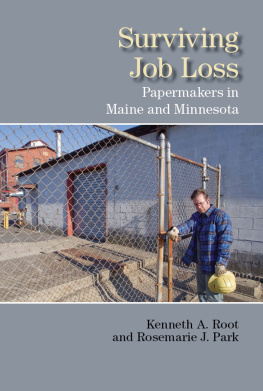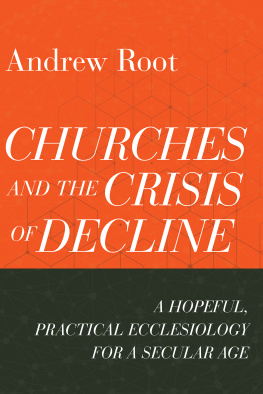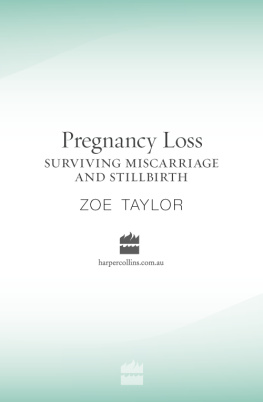Kenneth A. Root - Surviving Job Loss: Papermakers in Maine and Minnesota
Here you can read online Kenneth A. Root - Surviving Job Loss: Papermakers in Maine and Minnesota full text of the book (entire story) in english for free. Download pdf and epub, get meaning, cover and reviews about this ebook. City: Oxford, year: 2017, publisher: W.E. Upjohn Institute;Blackwell Publishers, genre: Politics. Description of the work, (preface) as well as reviews are available. Best literature library LitArk.com created for fans of good reading and offers a wide selection of genres:
Romance novel
Science fiction
Adventure
Detective
Science
History
Home and family
Prose
Art
Politics
Computer
Non-fiction
Religion
Business
Children
Humor
Choose a favorite category and find really read worthwhile books. Enjoy immersion in the world of imagination, feel the emotions of the characters or learn something new for yourself, make an fascinating discovery.
- Book:Surviving Job Loss: Papermakers in Maine and Minnesota
- Author:
- Publisher:W.E. Upjohn Institute;Blackwell Publishers
- Genre:
- Year:2017
- City:Oxford
- Rating:4 / 5
- Favourites:Add to favourites
- Your mark:
- 80
- 1
- 2
- 3
- 4
- 5
Surviving Job Loss: Papermakers in Maine and Minnesota: summary, description and annotation
We offer to read an annotation, description, summary or preface (depends on what the author of the book "Surviving Job Loss: Papermakers in Maine and Minnesota" wrote himself). If you haven't found the necessary information about the book — write in the comments, we will try to find it.
Surviving Job Loss: Papermakers in Maine and Minnesota — read online for free the complete book (whole text) full work
Below is the text of the book, divided by pages. System saving the place of the last page read, allows you to conveniently read the book "Surviving Job Loss: Papermakers in Maine and Minnesota" online for free, without having to search again every time where you left off. Put a bookmark, and you can go to the page where you finished reading at any time.
Font size:
Interval:
Bookmark:

Surviving Job Loss
Papermakers in
Maine and Minnesota
Kenneth A. Root
Rosemarie J. Park
2016

W.E. Upjohn Institute for Employment Research
Kalamazoo, Michigan
Library of Congress Cataloging-in-Publication Data
Names: Root, Kenneth A., author. | Park, Rosemarie J., author.
Title: Surviving job loss : papermakers in Maine and Minnesota / Kenneth A. Root, Rosemarie J. Park.
Description: Kalamazoo, Mich. : W.E. Upjohn Institute for Employment Research, [2016] | Series: WE focus series | Description based on print version record and CIP data provided by publisher; resource not viewed.
Identifiers: LCCN 2016002251 (print) | LCCN 2015048918 (e-book) | ISBN 9780880995085 (e-book) | ISBN 0880995048 (e-book) | ISBN 9780880995078 (pbk. : alk. paper) | ISBN 0880995076 (pbk. : alk. paper)
Subjects: LCSH: Paper industry workersUnited StatesCase studies. | Plant shutdownsUnited StatesCase studies. | UnemployedUnited StatesCase studies. | Displaced workersUnited StatesCase studies. | Older peopleEmploymentUnited StatesCase studies.
Classification: LCC HD8039.P332 (print) | LCC HD8039.P332 U676 (e-book) | DDC 331.13/78760974145dc23
LC record available at http://lccn.loc.gov/2016002251
2016
W.E. Upjohn Institute for Employment Research
300 S. Westnedge Avenue
Kalamazoo, Michigan 49007-4686
The facts presented in this study and the observations and viewpoints expressed are the sole responsibility of the authors. They do not necessarily represent positions of the W.E. Upjohn Institute for Employment Research.
Cover design by Alcorn Publication Design.
Index prepared by Diane Worden.
Printed in the United States of America.
Printed on recycled paper.
This book is dedicated to the memory of Steven A. Root.
Contents
Figures
Tables
Acknowledgments
For most people, getting a book idea to the finish line as a completed accomplishment is no easy task, and that is certainly the case for us. While book authors are (presumably) responsible for the bulk of the work, there are others involved in significant ways who remain anonymous. These others, paid for their work as research assistants, proofreaders, or typesetters, are not formally acknowledged by name, yet their work is essential, and the project wouldnt be completed if not for their involvement.
One of the individuals who has been a major helper to the senior author has been his son, Steve. Over the years, Steves task in numerous research projects was often to do the coding and setup work for computer analysis. Steve did the coding for this project, too, and he did it well. Then, at age 45, Steve diedan early death for sureand we no longer have his very capable assistance, pleasant manner, personal warmth, and wonderful smile.
While this book focuses on two paper mills in Sartell, Minnesota, and Bucksport, Maine, we have benefited from the assistance of Christina Greenleaf, the rapid response and peer support coordinator for the Maine AFL-CIO, who, with the permission of Judy Pelletier from the Maine Department of Labor, served as our Maine contact. Our primary access to contacts with the situation in the Sartell, Minnesota, area involved Gerry Parzino, United Steelworkers (USW) staff representative for District 11, located in Minneapolis, and Don Reginek, who served as the USW Local 274 president at the time of the Sartell downsizing and mill closure. Certainly, William Craig at the University of Minnesotas Center for Urban and Regional Affairs was also instrumental in helping us initiate this project; he then helped us expand the project when the Sartell mill closure was announced. We happily recognize the contributions of Kevin Hollenbeck, Benjamin Jones, and Erika Jackson at the W.E. Upjohn Institute for Employment Research, who were significantly involved in getting this book to publication. Of course, Verso employees at both the Sartell and Bucksport paper mills who participated in this research similarly deserve our thanks and recognition; we greatly appreciate their assistance. We are hoping that this book will initiate a fresh focus on the paper industry, and in particular provide assistance to those paper workers confronted with job loss.
Many thanks to all who have provided assistance in helping us complete our research.
Kenneth A. Root
Rosemarie J. Park
Introduction
Our results show that a job loss at age 50 or above has substantial and long-lasting employment effects. Estimated entry rates suggest that a representative displaced worker in his or her 50s has a 7075 percent chance of returning to work within two years of a job loss. Return rates for displaced workers in their 60s are substantially lower. These postdisplacement jobs are often shortlived, with displaced but reemployed workers facing significantly increased probabilities of exiting employment.
Sewin Chan and Ann Huff Stevens (2001, p. 485)
Losing a job through no fault of ones own is a significant event that often poses difficulty for the job loser and for his or her family. Most of us work because we need the compensation provided by the tasks we do. But beyond that, we also work to be included in the social milieuto have an economic identity connecting us to an employer, work colleagues, clients, customers, and our community. Without work, we are separated from our identity as a productive person, and if we go through an extended period of unemployment, we are likely to feel distant, isolated, detached, and unfulfilled (Young 2012).
For many displaced workers, there is an eagerness, even a desperation, to get back to work. The difficulty is that their personal skills may not be in demand, retraining in a different set of skills may be difficult to obtain, the economy may be in a recession (or recovering from one), and, as researchers have found, becoming fully integrated into the labor force after displacement can take time, perhaps two years or more (Silver, Shields, and Wilson 2005).
Our study of dislocated workers focuses on a comparison of downsized paper mill workers from a mill in Sartell, Minnesota, and another in Bucksport, Maine. Verso Corporation owned the two mills, which are now closed. A few months after the downsizing in Minnesota, the Sartell mill had an explosion and a fire, and the mill shut down for an assessment of damages. Ultimately, the company decided to close the Sartell mill, so another 280 workers were then thrown out of work. Our comparison of downsizing impacts and opportunities is somewhat complex: initially the comparison operates between the Bucksport and Sartell workers, then between those downsized from Sartell and those terminated from Sartell in the closure, and finally, in terms of policy and programs, between displacement at U.S. paper mills (as reflected in Sartell and Bucksport) and at a Canadian paper mill in Nova Scotia that shut down at about the same time as the Sartell facility.
While a large number of paper mills have closed in the United States over the past 25 years, there has been only one study (Minchin 2006) that we are aware of that describes the impact of job loss on those in the paper industry. For that reason, covers cases where both husband and wife lost their jobs at the Sartell mill.
, which forms an epilogue to the book, updates the reader on recent developments involving Verso.
Even before the Great Recession, more than 15 percent of U.S. workers worried about losing their jobs. That percentage ranked sixth-highest out of 15 OECD countries (Anderson and Pontusson 2007). However, with the ongoing threat of job loss to workers even after the nation has largely recovered from the recession, job loss is likely to remain a significant concern for U.S. residents, not only in the paper industry but in almost all sectors of the economy.
Next pageFont size:
Interval:
Bookmark:
Similar books «Surviving Job Loss: Papermakers in Maine and Minnesota»
Look at similar books to Surviving Job Loss: Papermakers in Maine and Minnesota. We have selected literature similar in name and meaning in the hope of providing readers with more options to find new, interesting, not yet read works.
Discussion, reviews of the book Surviving Job Loss: Papermakers in Maine and Minnesota and just readers' own opinions. Leave your comments, write what you think about the work, its meaning or the main characters. Specify what exactly you liked and what you didn't like, and why you think so.










